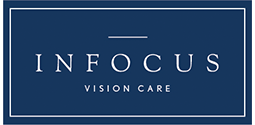Solar eclipses occur when the moon is between the Earth and the sun, casting a shadow on the Earth.
It is often asked if it affects or damages your eyes. The answer to this question is yes: it can harm your eyes and cause blindness. Therefore, it is essential that you take precautions.
When Is the Eclipse Happening?
It is anticipated that the solar eclipse will commence on Monday April 8th, 2024 at 2:04 p.m. and last for about two and a half hours. In many parts of Ontario, a total eclipse will occur, which means the sun will be completely blocked by the moon. It is the first time since 2017 that the moon will completely block the sun’s disk in North America. In addition, astronomers predict that the upcoming solar eclipse on Monday, April 8th, 2024 will last longer, be brighter, and be visible to more people than the one seven years ago.
How Can Your Eyes Be Affected?
It is well-known that sun exposure can damage your eyes over time, but exposure during a solar eclipse can lead to eclipse blindness or retinal burns, also known as solar retinopathy. As a result of this exposure, the retina (the back of the eye) can be damaged or destroyed.
What Is Solar Retinopathy?
The retina transmits light signals to the brain so that you can see. You cannot see clearly without a healthy retina. When you stare at the eclipse, your eyes may be damaged by solar radiation, causing permanent blind spots or distortions in your vision. Such a condition is called solar retinopathy.
Symptoms You May Develop:
- Blurry vision
- A blind spot in your central vision (one or both eyes)
- Distortion (in which a straight line looks bent or a door frame looks curvy)
- Increased sensitivity to light
- Dyschromatopsia (changes in the way you see color)
- Eye pain or grittiness
If you experience any of these symptoms or any changes from your normal day-to-day routine, contact your optometrist immediately.
Now That We Understand What a Solar Eclipse Is and Its Impact on Eye Health, Here Are Some Suggestions for Protecting Your Eyes and Safely Observing the Event:
- A safe method to view the sun directly is by using solar filters that are specifically designed for this purpose. These filters are utilized in both “eclipse glasses” or solar eclipse viewers that are held in front of your eyes.
- Your regular sunglasses are NOT suitable for viewing the eclipse even if the lenses are tinted dark
- Buying inexpensive solar eclipse glasses from unauthorized online sellers might be tempting, but it puts you in danger since they don’t offer complete protection.
- With an authentic solar filter, you should only see the sun and other bright sources of light like a mirrored reflection.
- If you are able to observe each light with your eclipse glasses or viewer, they are not safe and there is a greater chance of harming your eyes.
- Check your eclipse glasses or solar filter for any damage.
- Avoid looking at the sun directly through a camera, telescope, or binoculars that are not filtered, even while wearing eclipse glasses. These optical instruments amplify light beams, causing harm to both the protective features of eclipse eyewear and your vision.
- It is important to note that harm to your eyes from looking at an eclipse unsafely may not be noticeable until 4-12 hours later.
Your eyes are responsible for your vision; protect your vision, protect your future! Retinal damage can be irreversible. Remember, your eyes are your windows to the world. Prioritize eye health today for clear vision tomorrow.
For more details on eclipse glasses, safe viewing, and to book your next eye exam, get in touch with inFocus Vision Care. It all begins with you taking care of your eyes.



